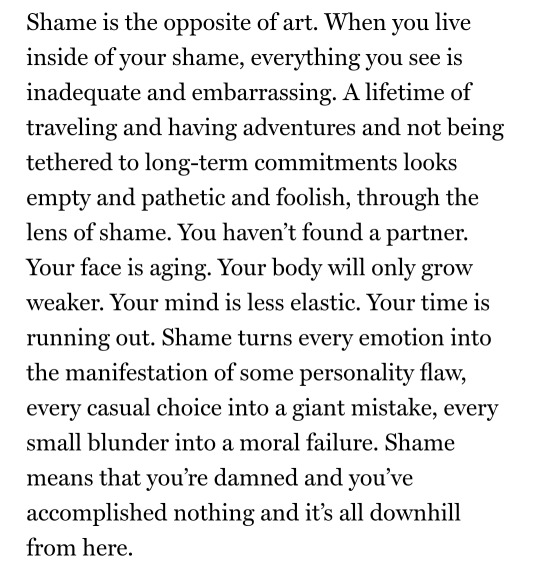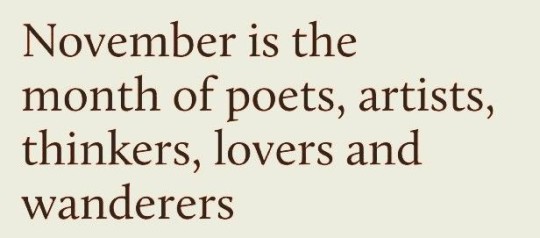Don't wanna be here? Send us removal request.
Text










The unseen heroes behind the Phantom of the Opera World Tour in China (pictured in Shanghai): stage technicians, sound engineers, lighting controllers, prop masters, wardrobe assistants, stage masters.
72 notes
·
View notes
Text

Gustave Moreau - Study for Lady Macbeth - (1851)
2K notes
·
View notes
Text
https://vm.tiktok.com/ZTdQuxw52/
I think I found my new favorite rabbit hole. This voice actor does Shakespeare scenes in a southern accent and I need to see the whole damn play. Absolutely beautiful
110K notes
·
View notes
Text
the first law of tragedies: the end is already written and inevitable. the second law of tragedies: your actions are all your own and you can choose to get off this ride whenever you want. the third law of tragedies: we both know that you are never going to do that.
65K notes
·
View notes
Text
I would say that the very essence of literature is the war between emotion and intellect, between life and death. Because if you use all of your emotions indiscriminately, you will kill yourself. Although the man who commits suicide is often a man of intellect, he seldom kills himself because of the conviction that it is better not to be than to be. In most cases, it’s from anger or a desire to punish somebody or to escape from himself. So emotions are the very topic of literature. Actually, all the arts deal with emotions. When you take away the emotions from a mathematician, he may still be able to make his calculations, but when literature becomes too intellectual, which means it begins to ignore the emotions and becomes brainy and cold, it loses everything.
— Isaac Bashevis Singer, as quoted in Conversations with Isaac Bashevis Singer, Isaac Bashevis Singer and Richard Burgin
57 notes
·
View notes
Text
i'm obsessed with hamlet. serial procrastinator, famous yapper, who monologues any time anything goes even mildly wrong. he gets POISON STABBED, and instead of dropping dead like his mother, his uncle, and his opponent, he MONOLOGUES ABOUT IT. HE PROCRASTINATES DYING TO MONOLOGUE ABOUT IT. there's just something so beautiful about him clinging to life to deliver one last baller speech
3K notes
·
View notes
Text
i need a production of hamlet that draws parallels between horatio and gertrude. we’re all so willing to believe and even sympathize with horatio loving hamlet despite the harm hamlet causes, why have we never considered if gertrude felt the same for claudius? just the concept of this enduring, unconditional love, love that blinds itself past the horrors the beloved commits. the only difference between them is that horatio never reached a breaking point, gertrude did. claudius tried to kill her son and suddenly that love found something it couldn’t overlook
13 notes
·
View notes
Text
i know the traditional interpretation of the Yorick skull scene is the classic one handed held out dramatically pose, but consider- Hamlet gently cradles the skull of an old friend with both hands, holding it with respect for the life that was once within it, as he considers the nature of death and his own mortality.
One scene later, as Hamlet dies in Horatio’s arms, he loses the energy needed to move himself and Horatio tenderly cradles his head in the same way so he can continue looking into his old friend’s eyes as he goes. If there was time left, Hamlet might consider how as he loses feeling in his flesh, all that’s left is the hardness of his own bones, and in time that’s all that will remain. It’s the same sort of contemplation, but now he’s on the other side of death.
871 notes
·
View notes
Text
Writing advice from my uni teachers:
If your dialog feels flat, rewrite the scene pretending the characters cannot at any cost say exactly what they mean. No one says “I’m mad” but they can say it in 100 other ways.
Wrote a chapter but you dislike it? Rewrite it again from memory. That way you’re only remembering the main parts and can fill in extra details. My teacher who was a playwright literally writes every single script twice because of this.
Don’t overuse metaphors, or they lose their potency. Limit yourself.
Before you write your novel, write a page of anything from your characters POV so you can get their voice right. Do this for every main character introduced.
230K notes
·
View notes
Text
One of my favourite questions for figuring out a character’s motivations is which qualities they most fear being assigned to them. Are they afraid (consciously or unconsciously) of being seen as stupid? Ungrateful? Weak? Incompetent? Lazy? Cowardly? Intimidating? Like they actually care? etc.
It’s such a fun way to explore into who they are, why they do what they do, what they don’t do out of fear, and how they might be affected by the events of the story. And I love when characters have negative motivations—trying to avoid something (in this case, being seen a particular way) as much as they’re trying to achieve a goal.
31K notes
·
View notes
Text
hamlet production but every hamlet soliloquy he talks directly to the audience, like looks them IN THE EYES and talk to them like a preacher to the church !!!! He finds solace in knowing that there are people that can see what he is seeing, knowing that theres always people he can talk to that wont even have the chance to tell anyone in the play his plans. Also in said production he often says his asides or what he's saying to himself to the crowd. Like in Act l when he says "a little more than kin and less than kind." he says that TOO THE CROWD like a silly little comedian.
also to theif and steal this post, in the ending scene horatio 100% looks up and finally sees what hamlet was seeing and he finally understands.
I'll come back to this if ive got more truth to preach
190 notes
·
View notes
Text


— Fyodor Dostoevsky, Crime and Punishment
21K notes
·
View notes



